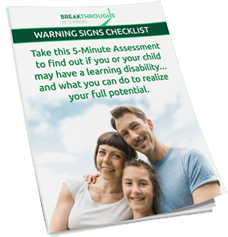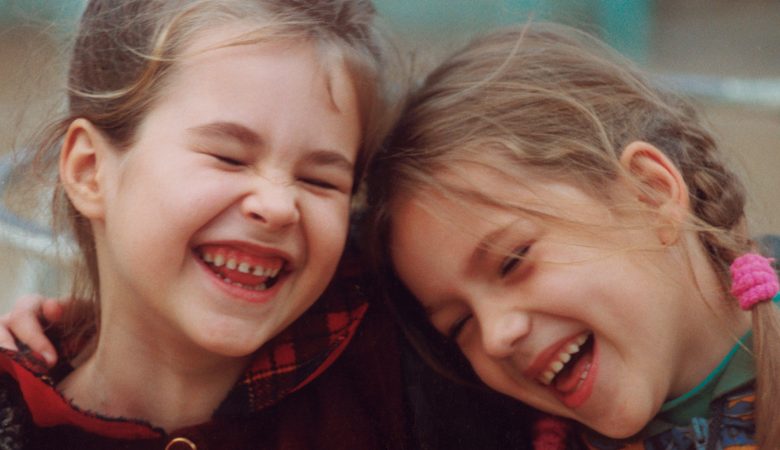
Does it affect life at home, at school or at work?
Take 5 minutes to complete the Warning Signs Checklist and discover whether you or your child could have learning difficulties that are impacting your life, and what to do about it.
Take The Free Warning Signs Checklist!
Some children are more naturally social than others. If a child’s tendency to withdraw is not by choice, but out of anxiety, that child will require more encouragement. Otherwise, that child may have difficulty relating to peers and risk depression and low self-esteem.
Many of the children we help at Breakthroughs in Learning struggle in social situations. Learning disabilities or academic failure can create anxiety that spills over into other areas of life, such as social interactions. Some children don’t have social anxiety and actively seek out social interactions, but lack the social skills to be successful. Fortunately, whether your child has a learning disability or not, there are many ways you can help your child develop social skills and connect with others.
Children will encounter challenges in preserving friendships. An argument with a friend or jealousy issues will often drive wedges into otherwise functional friendships. Rather than treat these occurrences as pre-adolescent or adolescent drama, acknowledge the feelings associated with these exchanges and respond with empathy. Instead of “You and your friends will grow out of this and you will laugh when you are older” try “I feel self-conscious sometimes too.” This will give room to the child to be open about his or her feelings and unload negativity that often interferes with resolving conflict on his own.
This actually does not need to be a formal play date. Often it involves simply knowing another parent who may have a friendly and outgoing child who enjoys meeting others. Introducing a withdrawn child to this enthusiastic other child can help bring out the best socially in the one who tends to be withdrawn. This is especially true if the outgoing child shares interests with the quieter one. Many of these pairings not only enhance confidence, but grow into life-long friendships.
These can be very small goals such as the child acknowledging communication with at least a head nod or eye contact, or saying one word to one new person each day. More advanced goals can be pursued as the child gains confidence and can include asking questions in class or attending birthday parties.
Allow the child to help define these goals based on his or her comfort level. Praise and motivation should be the responses here, rather than bribery or punishment. Even if a child only expresses interest in being at a birthday party for one hour, that is a vast improvement from the days when he did not want to attend at all. Always encourage this progress.
A child may be a naturally quiet person, or an outgoing person who is just afraid to shine. Listen and watch to learn the difference. Try not to label the child: even an innocent statement like “She is just shy” can box her into that belief and lead her to limit herself. Even if she manages the ability to be outgoing when she is older, she may continue to identify with “shy” and not expand beyond that.
However, if a child is quiet but still happy within peer groups, forcing her to become talkative may not be productive. Instead, encourage independence by expressing the importance of clear communication to prevent misunderstanding.
Good social skills are related to good communication skills and the best place to start with that is at home. Encourage an open atmosphere and do not mock feelings or social challenges. Keep conversations regarding human interaction positive. Children do not need to be popular at school in order to maintain good peer relationships. They simply need to develop good communication skills and security in being themselves.
If the needs of your child extend beyond the scope of this article and their social anxiety or withdrawal is negatively affecting their live please consult your doctor for help. If your child’s struggles with school are negatively impacting their social skills or they are actively attempting social interactions but lack the necessary skills contact Breakthroughs in Learning today to discover how educational therapy can help your child find success.
Subscribe to our newsletter and receive regular articles and resources to help you or your child perform better at school, home or work.
suscribe now
Post Your Comment Below